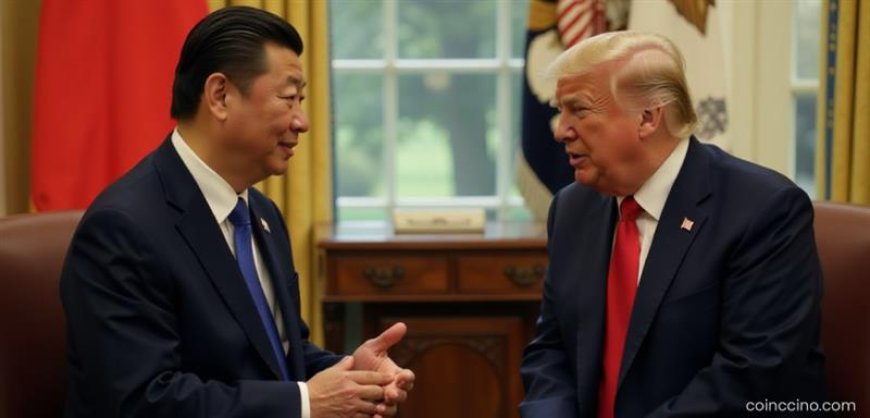Trump-Backed Meme Coins Surge After Optimistic US–China Trade Deal Comments
Following remarks by President Trump suggesting progress toward a U.S.–China trade deal, his associated meme-coins—$TRUMP and $MELANIA—experienced sharp rises in market value. The price jump occurred on high trading volume, fueling renewed interest in the politically-branded tokens.

Market Context
Meme coins continue to demonstrate sensitivity to political statements and macroeconomic narratives, especially when tied to high-profile figures. Even as global markets fluctuate on trade-policy expectations, tokens like $TRUMP and $MELANIA show how sentiment can rapidly drive speculative demand. This episode also highlights growing overlap between politics, token issuance, and market reaction.
Technical Details with Attribution
- $TRUMP surged by as much as 30 % on the day, after starting trading near $6.20 and rising above $8.
- Trading volume for $TRUMP on Solana-based exchanges exceeded $1 billion during the spike.
- $MELANIA also rallied—its price increased more than 45 %, nearing $0.15 per token.
- The surge followed a statement by President Trump that he believed a trade deal with China would be reached, offsetting earlier market concerns caused by retaliatory tariffs.
Analyst Perspectives
Some market watchers interpret the spike as an instance of politically-driven speculation rather than fundamental value creation. The tokens’ sensitivity to news implies high volatility and risk. Others suggest that while gains were notable, they may be short-lived unless backed by sustained utility or adoption—especially since memecoins generally lack traditional valuation metrics.
Global Impact Note
The event underscores how crypto markets (especially speculative tokens) are increasingly entwined with geopolitics and public discourse. Whether in the U.S., Asia or beyond, politically-connected tokens may become more reactive to policy signals—raising new questions around governance, investor protection, and regulatory treatment.